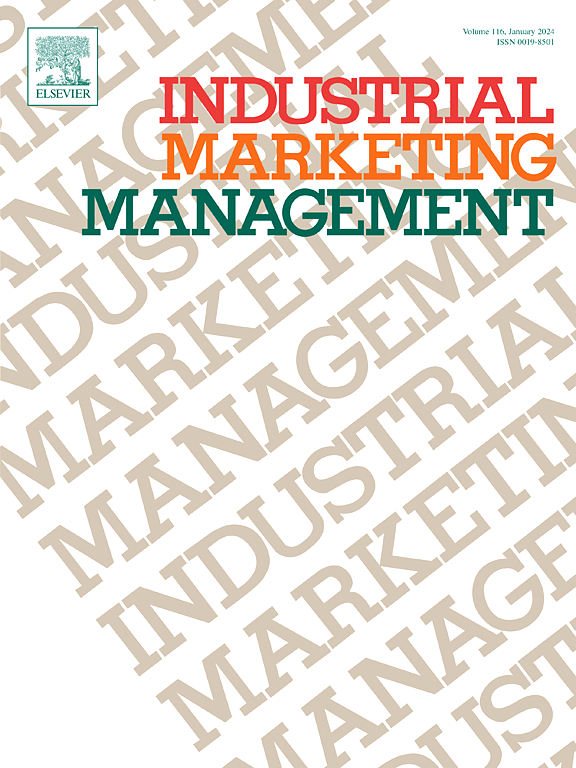商业营销研究的倾向得分模型
IF 7.5
1区 管理学
Q1 BUSINESS
引用次数: 0
摘要
倾向评分模型(PSM)是一种强大的统计技术,在适当的数据环境中,它可以解决混淆和选择的偏差,否则这些偏差可能会扭曲结果并导致错误的推断。然而,虽然PSM在企业营销研究中的应用越来越多,但许多研究错误地认为PSM是所有内质性问题的通用解决方案。通常,研究缺乏足够的细节,他们的目标是解决具体的内生性问题,这是一个关键问题,因为PSM只适用于某些类型的内生性。此外,确认PSM结果的有效性和稳健性的基本测试经常被忽视或报告不足,引起了对研究结果可靠性的关注。本文旨在通过提供有关PSM的适当使用、报告的关键方面以及应避免的常见误解和错误的最新实用指导,提高PSM在商业营销研究中应用的严谨性。其中包括一个在Stata中实现PSM的实际示例,以及一个全面的理由和最佳实践清单,以指导企业营销研究人员未来基于PSM的研究。本文章由计算机程序翻译,如有差异,请以英文原文为准。
Propensity score modeling for business marketing research
Propensity score modeling (PSM) is a powerful statistical technique that, in the appropriate data contexts, addresses biases from confounding and selection, which can otherwise distort results and lead to erroneous inferences. However, while the number of PSM applications in business marketing research is growing, many studies mistakenly assume that PSM is a universal solution for all endogeneity issues. Often, studies lack sufficient detail about the specific endogeneity problem they aim to address, which is a critical issue, as PSM is appropriate only for certain types of endogeneity. Additionally, essential tests to confirm the validity and robustness of PSM results are frequently overlooked or insufficiently reported, raising concerns about the reliability of findings. This article aims to enhance the rigor of PSM applications in business marketing research by offering updated practical guidance on its appropriate use, key aspects to report, and common misconceptions and errors to avoid. A practical example of PSM implementation in Stata is included, along with a comprehensive checklist of justifications and best practices to guide business marketing researchers in their future PSM-based studies.
求助全文
通过发布文献求助,成功后即可免费获取论文全文。
去求助
来源期刊

Industrial Marketing Management
Multiple-
CiteScore
17.30
自引率
20.40%
发文量
255
期刊介绍:
Industrial Marketing Management delivers theoretical, empirical, and case-based research tailored to the requirements of marketing scholars and practitioners engaged in industrial and business-to-business markets. With an editorial review board comprising prominent international scholars and practitioners, the journal ensures a harmonious blend of theory and practical applications in all articles. Scholars from North America, Europe, Australia/New Zealand, Asia, and various global regions contribute the latest findings to enhance the effectiveness and efficiency of industrial markets. This holistic approach keeps readers informed with the most timely data and contemporary insights essential for informed marketing decisions and strategies in global industrial and business-to-business markets.
 求助内容:
求助内容: 应助结果提醒方式:
应助结果提醒方式:


